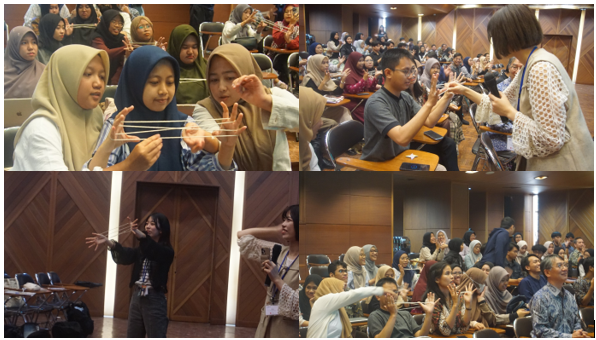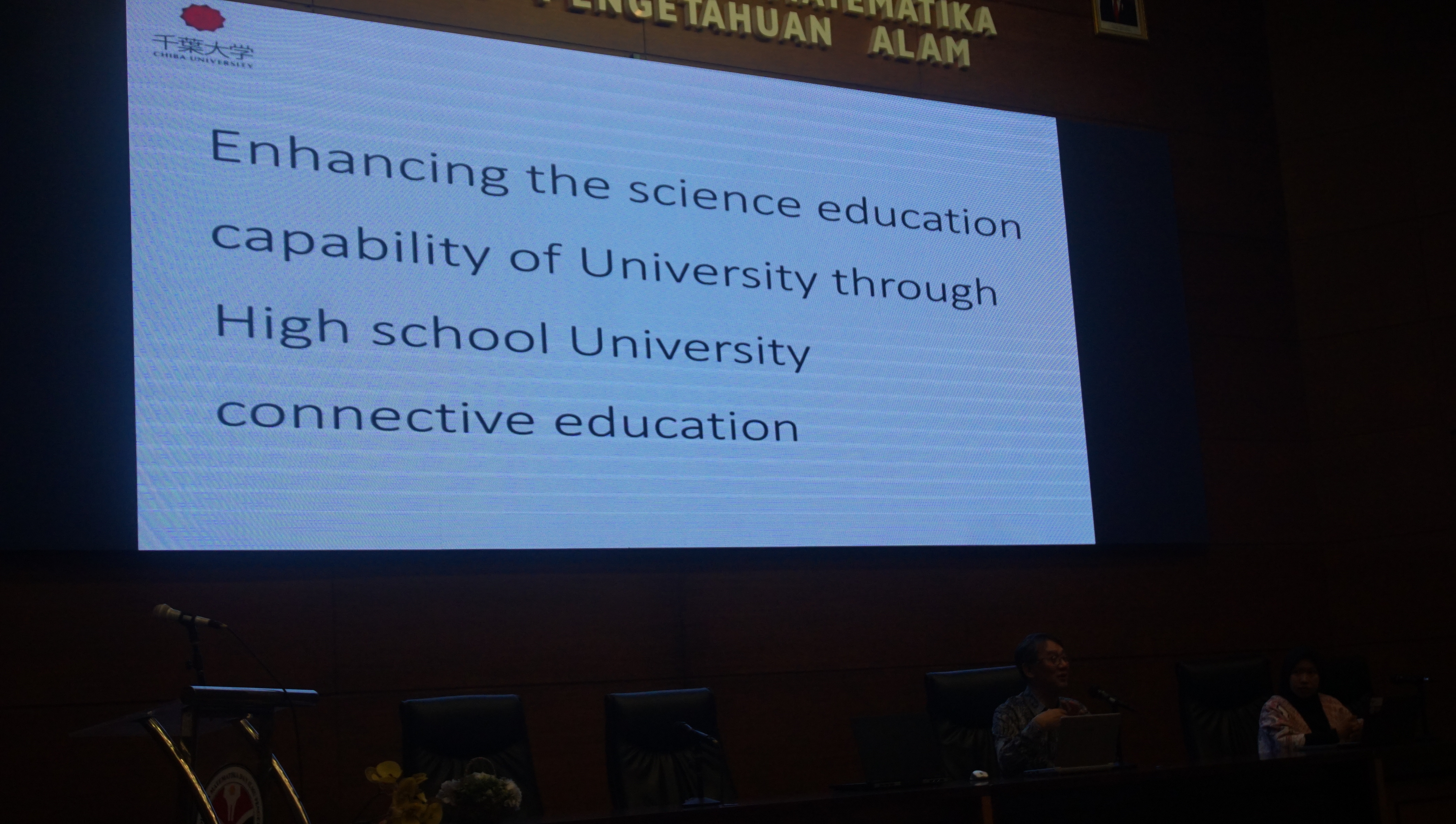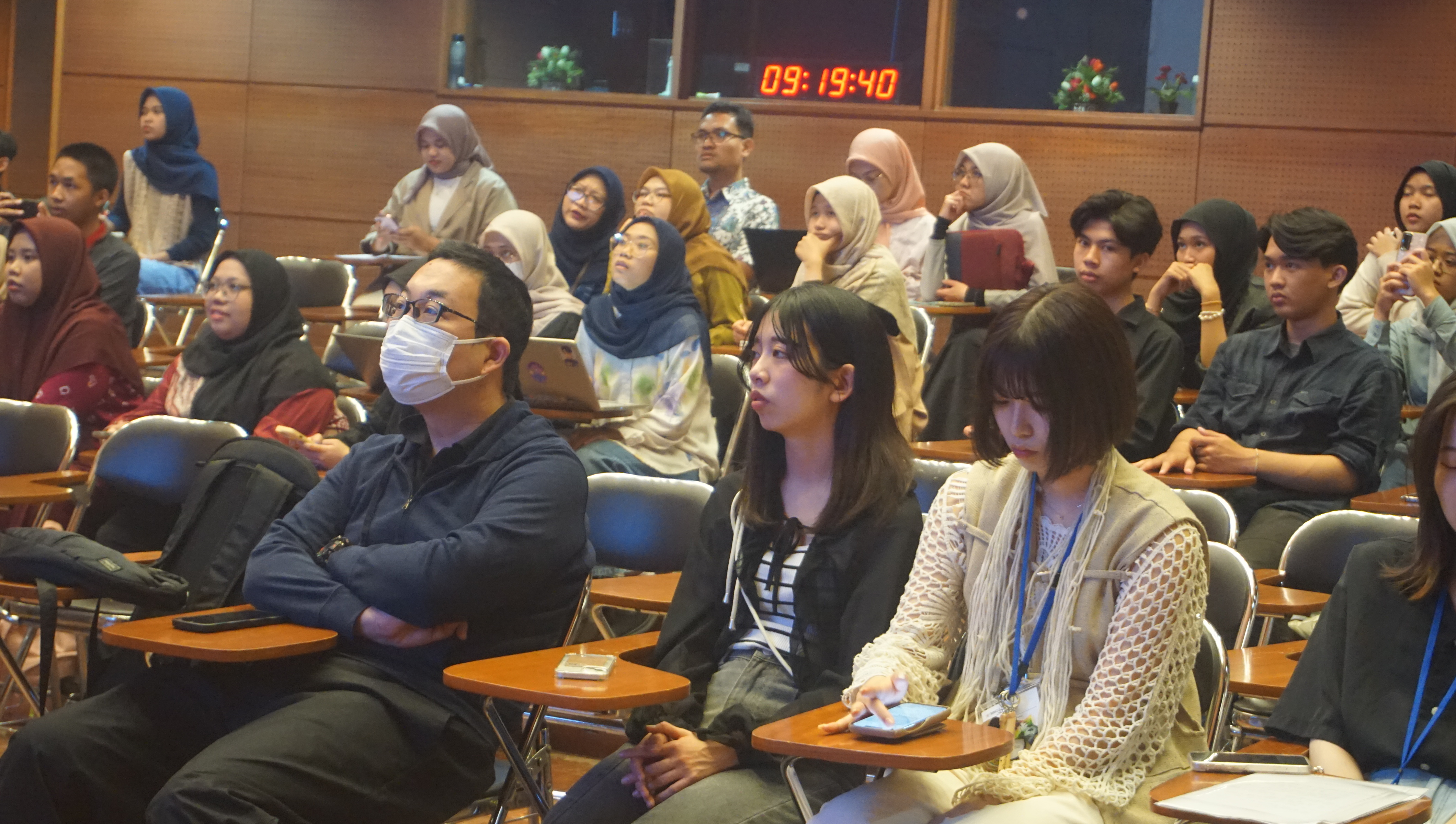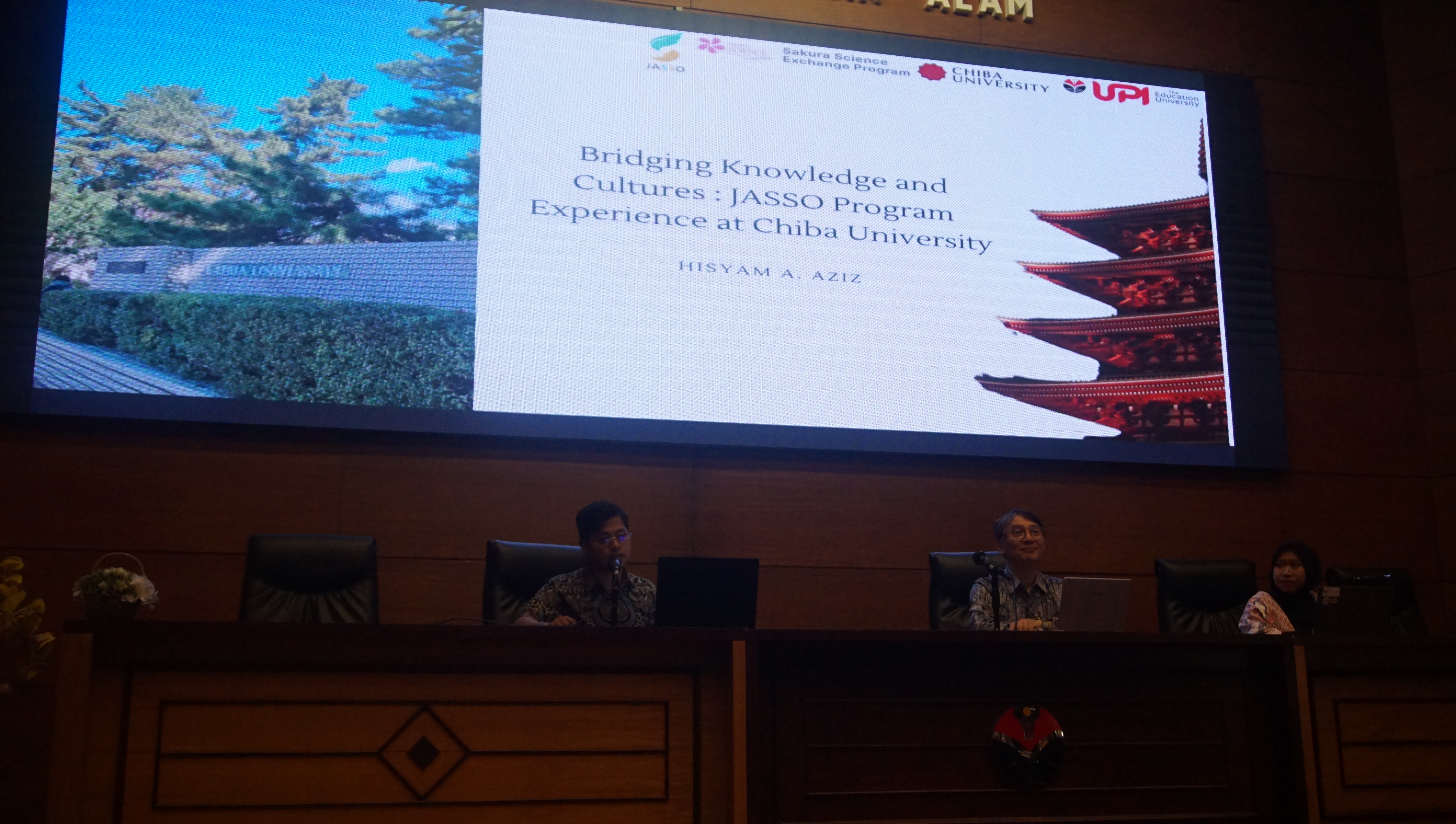(from left to right) Prof. Jun Nomura and Sumiati S. Pd as moderators
Bandung, March 5, 2025 – The FPMIPA UPI Auditorium once again witnessed the meeting of science, experience, and culture in a Guest Lecture activity themed “Enhancing the Science Education Capability of Universities through High School–University Connective Education.” This activity presented Prof. Jun Nomura from Chiba University, Japan, who for the second time shared strategic ideas in improving science education capabilities.
Participants pay attention to the presentation
In his presentation, Prof. Nomura emphasized the importance of building connectivity between universities and high schools as a synergistic step to strengthen the quality of science learning. According to him, collaboration across levels of education can enrich the learning ecosystem and prepare students to face global science challenges.
Hisyam Abdul Aziz, an alumnus of the JASSO program, shares his experiences in Japan.
Not only that, this activity also became a forum for introducing the JASSO (Japan Student Services Organization) scholarship program. Hisyam Abdul Aziz, a UPI student who was once a recipient of the JASSO–TWINCLE program, shared his inspiring story of participating in the hybrid class exchange program at Chiba University. For three months, Hisyam studied online for 2.5 months and continued his learning directly in Japan. In addition to attending classes and laboratories, in this program he also interacted with students from various ASEAN countries. This experience became a valuable provision that broadened his academic insight and motivation.

Ayatori learning session, the Japanese rope art
The activity continued with a warm and humorous cultural exchange session. Chiba University students—Nana, Noh Kawase, Taisei, Mikika, Hiromasa, Shuhei, Nana Takada, Natsumi, and Hana—introduced a traditional Japanese game called “Ayatori”. In this game, participants are taught to form a net, the Tokyo tower, and various other unique shapes using a piece of rope. Indonesian students were enthusiastic about trying and laughing together, lightening the atmosphere and creating close friendships.
This activity is not only an exchange of knowledge, but also a symbol of strengthening the friendship between Indonesia and Japan, as well as fostering a spirit of participation in international educational and cultural forums. (amca)





